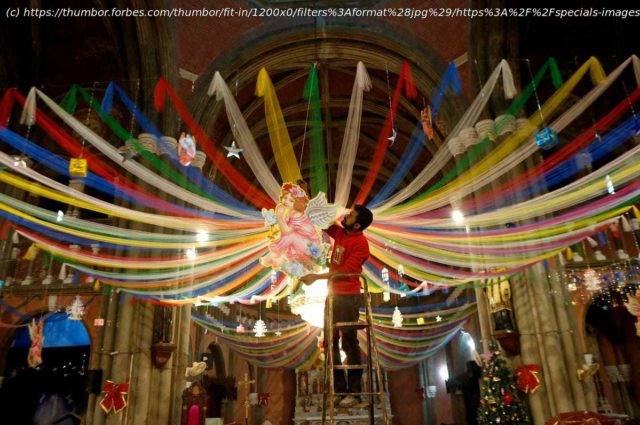The feast that Christians celebrate during Christmas has helped shape our view of what it means to be a human person.
A correct view of the human person is essential for economic science and for the formation of economic policy. If most people regarded humans as just another grouping of chemicals, our policy discussions and analyses would be very different. The feast that Christians celebrate during Christmas has helped shape our view of what it means to be a human person. Although Christianity – and any other faith – by definition requires us to go beyond reason, it does not mean that it is unreasonable to rely on traditions that reason alone can’t explain. This idea is found in English philosopher John Locke ’s Reasonableness of Christianity (1695). Locke wrote to the Bishop of Worcester, England, « The Holy Scripture is to me, and always will be, the constant guide of my assent; and I will always hearken to it, as containing the infallible truth relating to things of highest concernment. » In his classic Road to Serfdom (1944), F.A. Hayek wrote that the individualism at the heart of Western civilization developed from « elements provided by Christianity and the philosophy of classical antiquity. » Hayek defended a type of liberalism which « is at least not incompatible with religious beliefs and has often been held and even be developed by men holding strong religious beliefs. » He identified with the liberalism of Edmund Burke, Tocqueville, and Lord Acton. When speaking about traditions and religion, even nonreligious historians have to recognize that few events have had as much significance as the Christian narrative that God became man and that each person receives his dignity from that event. The feast of Christmas, like other Christian traditions, evolved with influences from many cultures. Its name in English means, literally, “Christ’s Mass.” In several Romance languages, the term for Christmas derives from the Latin for « birth »: Navidad in Spanish, Natale in Italian, Natal in Portuguese, and Nadal in Catalan. Linguistic experts also trace the French Noël to the Old French nael, which also derived from the Latin natalis.






